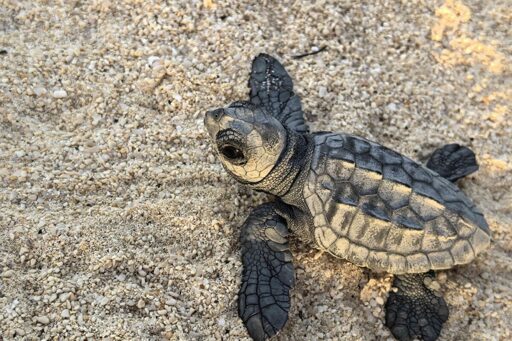Seven years into patrolling on Cabo Verde’s islands, Roni Nelson Batista Ramos now protects endangered sea turtles on the beaches where he once poached them. A few decades ago, he hunted sea turtles to feed his family, he says, since consuming turtle meat was a common practice among locals on his island. Back then, all he did was hunt turtles, and it was free food on the table, Ramos tells Mongabay. However, after stricter conservation efforts and new legislation that criminalized killing threatened turtle species, poaching activities plummeted in the country. Many poachers were fined and struggled to adapt to a new life. “I had turtle meat for personal consumption and never realized I could make a living out of conserving them,” he says. “But now, I guard them against the poachers, and it’s motivating to see how these efforts have driven positive impacts for their conservation.” Ramos is among about a dozen former poachers who have been employed by conservation organizations to keep poaching numbers low on the country’s beaches. According to the Turtle Foundation, illegal catches of female turtles on the island of Boa Vista have declined from 1,253 in 2007 to just 20 in 2024. Meanwhile, in the same period, loggerhead turtle nests on the island increased more than sevenfold. Rangers find a sea turtle on the Lacacão beach during a morning census. Image courtesy of The Turtle Foundation. A ranger measuring a turtle’s shell and collecting data at the Canto camp. Image courtesy of The Turtle…This article was originally published on Mongabay
From Conservation news via this RSS feed


